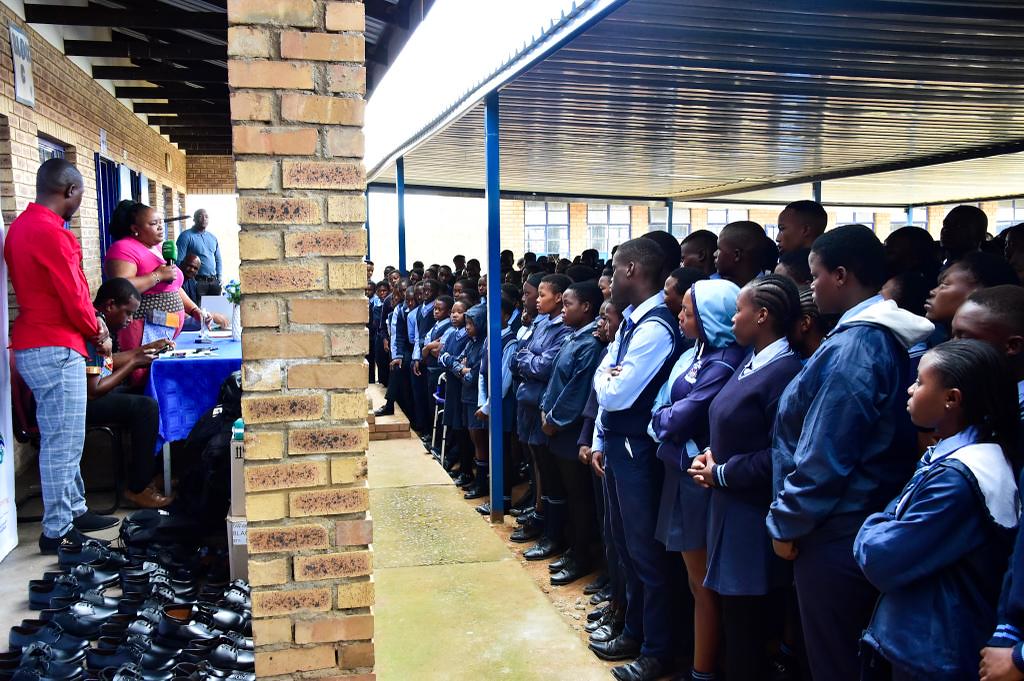Mathematics is more than just sums and symbols. Maths is the foundation of logical thinking, problem-solving, and the engine behind careers in science, technology, and engineering. Yet across South Africa, 464 public schools no longer offer it as a subject.
That’s not a typo. Of South Africa’s 22,381 public schools, in nearly 500 of them, learners no longer have the option to take core mathematics, raising alarm bells across the education sector. The worst-hit provinces include KwaZulu-Natal (135 schools), the Eastern Cape (84), and Limpopo (78). Even in relatively better-resourced provinces like the Western Cape, 61 schools have dropped the subject.
This startling statistic emerged in response to a parliamentary question posed by EFF MP Mandla Shikwambana to Basic Education Minister Siviwe Gwarube. The implications are deeply worrying — not only for individual learners but for South Africa’s future competitiveness in science, innovation, and economic growth.
Why is maths disappearing?
The Department of Basic Education (DBE) says the trend is driven by a combination of factors: low learner enrolment, budget constraints, and a national shortage of qualified mathematics teachers.
“While Mathematics remains a high-priority subject, schools — particularly smaller ones — may not have sufficient resources or demand to offer both Mathematics and Mathematical Literacy,” the DBE said in its parliamentary response.
In practice, many schools are steering learners toward mathematical literacy, a less technical subject that doesn’t qualify learners for university programmes in engineering, accounting, or the sciences. It’s seen as an “easier pass,” especially in schools under pressure to maintain high matric pass rates.
Dr Judicial Sebatana, an education expert from North-West University, notes that this pressure is a major contributor to the trend. “When learners fail mathematics, schools do not achieve a perfect pass rate. As a result, some schools encourage more learners not to take the subject,” he said.
More than just numbers
Education unions and civil society organisations warn that this is not just a curriculum issue. It’s a crisis that deepens inequality.
Basil Manuel, spokesperson for The National Professional Teachers’ Organisation of South Africa, told Mail & Guardian: “Any number of schools not having mathematics will hinder the progress of our education system.”
The Public Servants Association took it further: “This decision disproportionately affects learners in underprivileged communities, exacerbating existing inequalities in the education system. These learners would have limited options and study courses that are not needed by the market, thus condemning them to perpetual unemployment and poverty.”
The numbers reflect a broader downward spiral. Nationally, the percentage of matric learners taking mathematics has dropped from 46% in 2011 to just 34% in 2023. In 2024, the total number of learners registered for maths fell to 255,762 — down by more than 12,000 from the previous year.
South Africa’s poor performance in international assessments such as the Trends in International Mathematics and Science Study (TIMSS), a global benchmarking study conducted every four years, only adds urgency. Despite testing learners one grade above the international norm, South Africa still finished last in fourth-grade mathematics for the TIMSS 2023 compared to 63 other countries.
And with fewer learners taking up core maths, the country’s already concerning skills gap is set to grow. As it stands, South Africa has one engineer for every 3,100 people. In Germany, it’s one per 200.
What the government says it is doing
When explain reached out for further comment, the DBE shared their written parliamentary reply, reaffirming that the department is taking action to stem the decline of mathematics in South African schools.
These efforts include:
- Holding monthly meetings with provincial education departments to share what’s working, troubleshoot challenges, and find ways to get more learners enrolled in the subject from Grade 10 onwards.
- The department is also putting greater emphasis on Early Childhood Development and Foundation Phase learning—essentially going back to basics. This includes reviewing the rules around teacher placements to ensure younger learners are in smaller classes with better maths support from the start.
- Recognising that language can be a barrier, the DBE is rolling out a Mother Tongue-based Bilingual Education initiative, aiming to make it easier for learners to grasp mathematical concepts by teaching in both English and their home languages.
- There’s also the Mathematics, Science and Technology Conditional Grant—an ongoing programme that funds equipment, teacher training, and learner support. It currently benefits 500 secondary schools, 300 technical high schools, and 200 feeder primary schools. And schools are being nudged to steer learners toward core mathematics rather than mathematical literacy wherever possible.
“These measures are part of our broader strategy to improve learner participation and performance in Mathematics and ensure that more schools are equipped and encouraged to offer the subject,” according to the DBE.
But experts aren’t entirely convinced these efforts go far enough — or fast enough.
Dr Sebatana says systemic issues like teacher shortages and pass-rate pressure remain huge obstacles. He warns that unless maths becomes a non-negotiable again and support for teachers is ramped up significantly, “the long-term impact on learners and the economy is cause for concern.”
So, while the DBE’s plans are welcome, critics say what’s really needed is urgent, large-scale intervention and accountability. For many learners, particularly those in rural or under-resourced schools, time is running out for this generation of scholars.
What’s unfolding is not simply a curriculum adjustment—it’s a systemic crisis. The removal of core mathematics from hundreds of public schools may be driven by practical constraints, but the consequences are anything but practical. As learners are steered away from maths, their future study and career options narrow, and the country’s long-standing skills shortage deepens.
Without immediate, coordinated action, we risk locking out another generation from opportunities in science, engineering, and innovation. The numbers may be dropping, but the urgency has never been higher.
Emma is a freshly graduated Journalist from Stellenbosch University, who also holds an Honours in history. She joined the explain team, eager to provide thorough and truthful information and connect with her generation.




